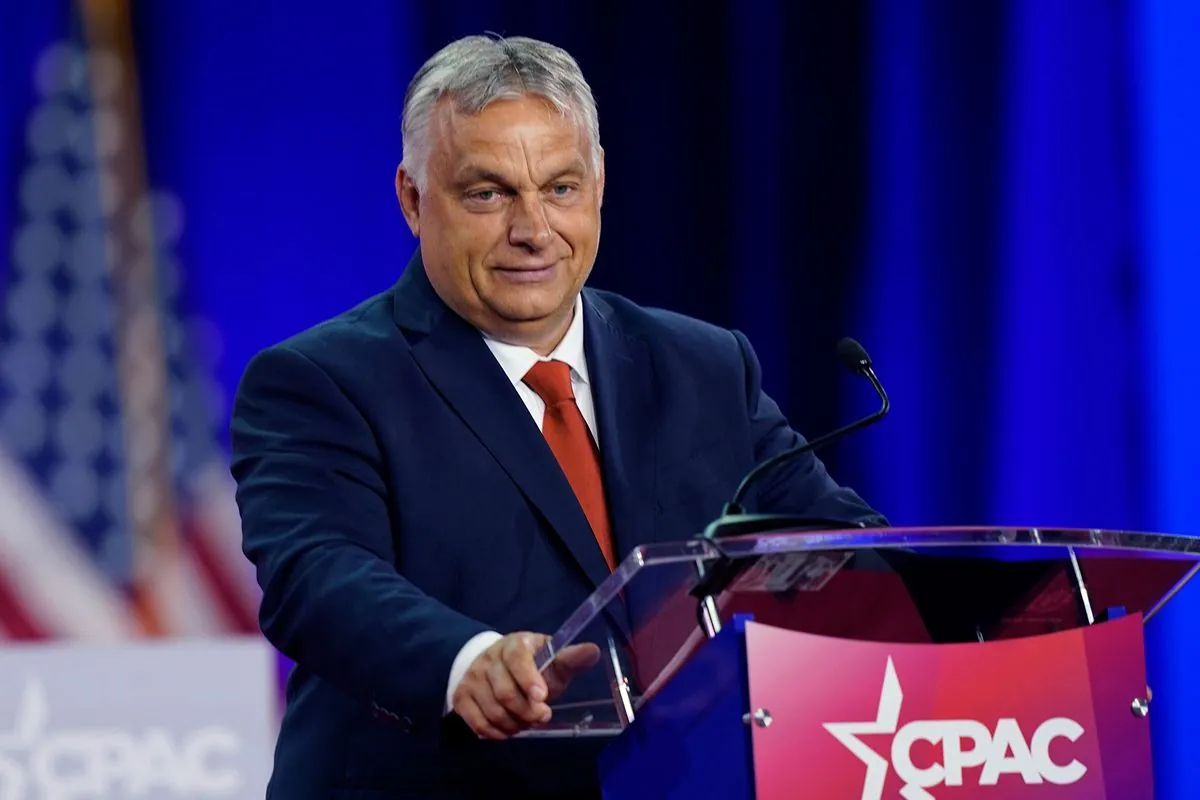Hungarian PM Orban Plans Economic Overhaul Amid Leadership Changes
Hungarian Prime Minister Viktor Orban announces plans for a new economic ministry and central bank leadership change. The move aims to boost growth and address recent economic challenges in the lead-up to the 2025 pre-election year.

Viktor Orban, Hungary's long-serving Prime Minister, has unveiled plans for a significant restructuring of the country's economic leadership. This move comes as Hungary, a nation of approximately 9.7 million people, grapples with recent economic challenges and prepares for the 2025 pre-election year.
The proposed changes include the creation of a new ministry responsible for both the economy and state finances. This restructuring coincides with the upcoming vacancy in the position of central bank governor, currently held by Gyorgy Matolcsy, whose term ends on March 1, 2025.
Orban, who has been at the helm of Hungarian politics since 2010, has faced economic headwinds in recent times. The country experienced a recession last year, followed by a surge in inflation that peaked at over 25% in the first quarter of 2023, the highest in the European Union. This economic turbulence has led to a public disagreement between Orban and Matolcsy, who has led the National Bank of Hungary since 2013.

The discord between the government and the central bank has centered on the causes of the inflation surge. The National Bank of Hungary, founded in 1924, has criticized Orban's policies, particularly the caps on prices and interest rates, which the bank claims have limited its independence.
In response to these challenges, Orban has announced that a senior minister will oversee his economic recovery plan for 2025. This strategic move comes in the wake of his Fidesz party's disappointing performance in the June 2024 European Parliament election, where it recorded its worst result in nearly two decades for a national or EU vote.
"It is obvious that whoever takes up that post, cannot become this senior minister (in charge of the economy and state finance), to speak frankly."
While Orban did not name his picks for the new positions, speculation is rife that Finance Minister Mihaly Varga may succeed Matolcsy as central bank governor. Meanwhile, Economy Minister Marton Nagy, a former central banker, is tipped to take charge of public finances under the merged ministry.
The National Bank of Hungary recently paused its rate-easing cycle, maintaining the EU's highest interest rate at 6.75%. This decision came after 15 consecutive cuts totaling 1,125 basis points, as inflation rebounded outside the central bank's target range.
Looking ahead, Orban has outlined ambitious goals for 2025, including achieving economic growth between 3% and 5%. His plans involve substantial wage increases, enhanced tax benefits for families with children, and measures to support small businesses. These initiatives aim to stimulate growth while maintaining fiscal discipline in the 2025 budget.
As Hungary, known for its rich history and cultural heritage, including 13 Nobel Prize winners and the world's largest thermal water cave system, navigates these economic challenges, the success of Orban's restructuring plans remains to be seen. The country's ability to balance economic growth with fiscal responsibility will be crucial as it approaches the 2025 pre-election year.


































